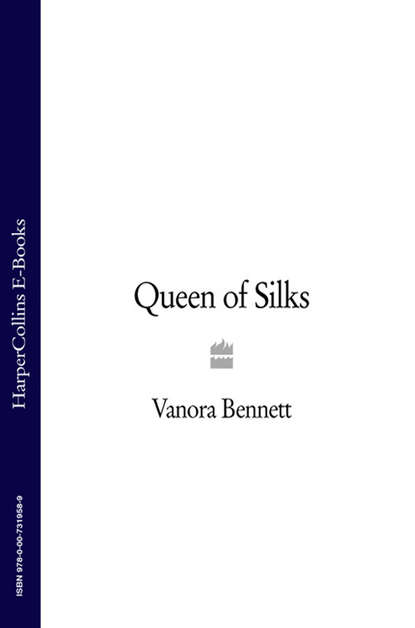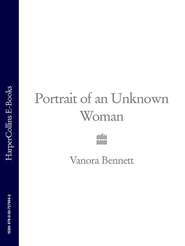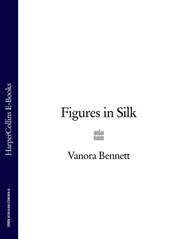По всем вопросам обращайтесь на: info@litportal.ru
(©) 2003-2024.
✖
Queen of Silks
Настройки чтения
Размер шрифта
Высота строк
Поля
He mumbled something. Even his scalp was on fire. He picked up his box.
Alice Claver planted herself one step in front of him, her smile half a threat.
‘Don't leave us hanging,’ she said, more command than plea. ‘Who was the cloth for?’
He composed himself. Decided upon his choice of who to offend, and made himself smile at Alice Claver. Turning sharply away from Anne Pratte and slightly away from Isabel, he said: ‘They say – though I can't be sure they're right – to your new apprentice's sister, Mistress Shore.’
Alice Claver almost choked. ‘No,’ she said, with a mixture of shock, disbelief, envy and amusement. ‘Really?’ Then, as if remembering Isabel's presence, she clapped a friendly hand on Robert Lynom's back and ushered him out towards the door. Twittering excitedly, Anne Pratte followed; she wasn't an unkind woman usually, but the thrill of that story had eclipsed any worries she might otherwise have had about Isabel's feelings.
Isabel thought he wouldn't dare even glance back at her. He disliked market gossip, and he'd known what was in the letter her father had written her; he'd be miserably aware of having added to her worries about her family with the story they'd bullied out of him.
But he did look back, from the doorway. ‘Good day, Mistress Claver,’ he said bravely; and, in a rush, ‘My apologies. I shouldn't have …’
She met his eyes and nodded, forgiving him. And it was the memory of that moment of mutual bravery, and the gratefulness on his face, that gave her the courage to decide, once she was alone with the letter, not to think about it any more, or rage against her father, or envy Jane's beauty or aristocratic admirers. She was a Claver now. Her life was here.
If Isabel thought she'd be taken straight back to Alice Claver's inner sanctum, the silk storeroom, as soon as she'd apprenticed herself, she was undeceived that night over dinner.
The apprenticeship timetable Alice Claver outlined, with a hard look, had no space in it for musing over the finest luxuries of civilisation, or for planning vast wholesale purchase strategies. It involved mastering all the eye-straining, low-grade, repetitive, menial tasks of retail silkwork first – the jobs Alice Claver put out to the wrinkled, skinny shepster and throwster women who worked from five-foot-wide stalls huddled outside the biggest selling markets, the Crown and Broad Selds, along their frontages on Cheapside and down their side doors on Soper Lane. Not just twisting imported raw silk into threads; but throwing it into yarns ready for use, and spinning, and dyeing, and turning seams. She was to learn every stage of the process from taking the strands of raw silk gathered by Italian reelers from silkworm cocoons to selling manufactured silk, on the street, by the ounce or the pound, as sewing silk, open silk, twine silk or rough web silk, the stuff used to make loops on which to attach warp threads while weaving, so they could be separated into two sets to let the weft thread pass between them. And she wasn't just to learn these humble jobs, but to sit outside in all weathers with the hunched shepsters and throwsters and dyers, learning from them, and about them.
The Prattes sneaked a look at each other. Isabel knew it was a test. Alice Claver must be doing this deliberately. She could imagine her mother-in-law's voice saying, with grim satisfaction, ‘Let's knock the nonsense out of her’. She must think Isabel would protest. Isabel wasn't going to. She kept her eyes humbly down on her untouched food and nodded.
‘It's only for a year,’ Anne Pratte said reassuringly, in her papery little voice, as if trying to soften Alice Claver's blow. ‘The next stage is embroidery. But we already know how good you are at that. So it won't be long before you can move on to the real thing and start learning weaving. Narrow-loom work. Ribbons. Cauls. Laces. London's glory. The finest silk piecework in Christendom. And,’ daringly, flinching from Alice Claver's cold gaze, she leaned forward and patted Isabel's hand, ‘I've asked Alice if I can teach you that.’
Isabel looked up, surprised and touched. Four Pratte eyes were on her, brimming with kindness. The Prattes were both ignoring Alice Claver, still glowering behind them.
She rose in the dark all winter. She went to work holding a candle in chapped, raw hands, like all the other poor girls in brown and grey woollens working in the selds, whose existence she'd never been more than half-aware of until now. Like them, in those clothes, she'd become invisible to everyone from the Mercery's richer, gayer families – even her own father. He walked straight at her in the street – she sometimes felt, as she jumped out of his way, that if she didn't move he'd walk straight through her. The pretty merchants' daughters she'd grown up with didn't mean to snub her. They just wafted by the quiet dun mouse of a girl on their way to sit embroidering at their fathers' stalls in their spring-coloured puffs of satin. They couldn't see her.
Sometimes she felt like a living ghost – transparent to everyone she'd ever known. No one minded nowadays if, while she was throwing or twisting silk or turning a seam, her eyes filled with hot tears that crept down her face until, in the autumn winds, her cheeks became as raw and chapped as her fingers. No one minded, because no one noticed, as long as she turned out the required number of threads or piles of fluffiness or bright twisted yarns, when she would be rewarded with a rough pat, or a grunt, from whichever shabby mistress she was being loaned to for the day. And she found the hotness of her own tears a comfort – a proof to herself that she was there, after all; not quite transparent and emptied of the fluids of life; not quite invisible.
The tears were for Thomas, she told herself. So was the shrivelling pain she always felt under her heart, always, as if her body were being drained away by a tide that was pulling her off into the darkness. But sometimes, as her hands moved through the silk, with a deft life that felt independent of her mind, she thought the tears, and the pain, might after all be just for herself.
She talked to Thomas in her head. Or she tried. Tried to keep him alive; tried to take comfort in remembering his look of fuzzy astonishment when he woke up to find her next to him, his delighted snugglings and the little kisses he'd place, shyly, like acts of worship, on her hands or forehead. But all she had to tell him, apart from how she missed him, missed the warmth of a time when someone needed her, was about the detail of her days drudging in the selds. And what would he have understood of any of that?
Sometimes, when it felt too hard to explain to Thomas why she'd kept submissively quiet when Alice Claver or one of her underlings pulled a piece of work apart and told her to start again, when she couldn't even begin to imagine the look on his face, she'd talk in her head to the man from the church instead. He'd have understood why she gritted her teeth through the cold that went into her bones; took the telling-off and the false starts so patiently. Gradually his became the face she conjured up to talk to in whatever corner she was working in; a stranger, really, but someone who knew about purposefulness, who could coolly plan ahead. ‘He'd be proud of me if he saw me now,’ she thought stoutly sometimes, ‘doing the right thing by Thomas, and helping fate to bring me a better future into the bargain.’ Though at other times, in the moments of despair when her guts felt full of ground glass, when she stopped believing she was anything but a pair of hands twitching outside a grey dress, when the darkness seemed to be going to last forever, she'd sometimes also think: ‘No, he'd be horrified. I've taken the wrong way. I'm lost.’
She came home to Alice Claver's house most nights too tired to think. She was grateful for that. All she had energy to do was to curl up alone on her grand, empty marriage bed, stretching out her cramped muscles, whispering to Thomas as she rubbed warmth back into her blue-white fingers.
With time, though, she found there were consolations. Long after she'd lost one world she realised she'd somehow gained another: the busy, raucous, teeming world of the other hard-working women in browns and greys: the ones who did the jobs other people made fortunes from, the ones she herself had only just begun to notice.
Isabel had grown up at the smart northern end of the Mercery – the roads leading up to Catte Street and the Guildhall beyond: grand Milk Street and Honey Lane and Colechurch Lane; Old Jewry, to the east beyond St Thomas of Acre, where the Prattes and Lynoms and Shores lived, and where the Royal Wardrobe was, the depot for all royal cloth purchases. Now, running errands for Alice Claver taught her every inch of the industrial south side of Cheapside too: the sunless snakings of Popkirtle, Thenwend and Gropecunt Lanes, behind Cordwainer Street; every tenement, warehouse and patch of garden, and every jobbing mercer and silkwoman wife, stallkeeper, denizen, stranger and pieceworker living and working in them.
For anyone willing to listen, those lanes were alive with talk.
The silk workers she was farmed out to quickly forgot to be shy of her. Sometimes Isabel had her ear bent by the forbidding Katherine Dore, the throwster who was taking her ex-apprentice Joan Woulbarowe to court for stealing £12 13s 4d of silk. Sometimes she'd get caught, somewhere in Soper Lane, by gangling, wild-elbowed Joan Woulbarowe, out of jail now, preparing for her next appeal appearance at the Court of Arches while she stayed with her aunt, Rose Trapp, in a tenement in Lad Lane. Joan Woulbarowe said her mistress had wanted to keep her in service once her term was up, and had invented the whole tarradiddle as a way of trapping her to stay on as unpaid help. Isabel never got to the bottom of the story.
Sometimes Isabel learned things about her own Lambert family from the market talk. When Agnes Langton died at Stourbridge Fair, her terrifyingly overbearing mother, Jane Langton, the widow of a saddler, who knew nothing of the silk trade, had swept out from a hitherto unsuspected tenement behind St Benet Sherehog Church and completed Agnes's enormous transaction with two Genoese merchants for silk goods worth £300 15s – then sold the lot on to John Lambert for a cheeky £350, enough to keep her comfortably in her old age, and retired to Norfolk. ‘He doesn't keep his ear to the ground, that John Lambert,’ Agnes Brundyssch the throwster said comfortably. ‘Never did.’
But no one on the street had a bad word to say about Alice Claver. She was the heroine of the markets. Alice Claver was the protector of the poor, because she wrote the petitions every market woman wanted: the Stop the Italians petitions. The grey and brown women hated the Italians, who tried to undercut the delicate small silk goods that they made in London by selling their own countrywomen's imported goods at cut price. Isabel knew that Alice Claver got William Pratte to help her draft the petitions that she and a gaggle of lesser silkwomen presented regularly to Parliament, using proper legal language. But they didn't care about him; he was invisible to them. They believed it was purely thanks to Alice Claver that they'd got four Acts of Parliament through, protecting them from the greedy Lombards, who as everyone knew were worse than the French and Hanse and Flemish put together. ‘You have to be tough to stop the Italians,’ Isabel Fremely said, nodding at Agnes Brundyssch. ‘Mistress Claver's more than a woman. She's a force of nature.’
As winter turned to spring – every now and then a fresh breeze blowing through the stalls with a promise of blossom tomorrow – Isabel sometimes found herself breathing in deep and thinking, ‘I'm still here’ and ‘I've done it.’ And when she did, it was the face of the man in the church that creased into an encouraging wolf-smile in response. Quite what she'd done, beyond surviving the winter, wasn't clear even to herself. But sometimes she thought it was keeping quiet to the market women about her personal sorrows, her times of weakness; sticking with iron-hard determination to her pledge to become a good apprentice to Alice Claver, not to sink into peevish resentments. When she smelled spring coming, and heard the respect of the tough women around her for her mistress, she realised she agreed. She'd learned to share their grudging admiration for Alice Claver's limitless commitment to her work.
Isabel kept out of Jane's way all winter. She didn't know what to say to her. She was mastering the resentment she might have felt for Alice Claver; and she didn't want to have to start struggling to master resentment against her sister. Besides, it would have been excruciating if Jane had started trying to make peace between her and their father, charming him with a flick of golden blondeness or an alluring white hand on his sleeve.
She saw her sister on Sundays, at St Thomas of Acre, and every time Jane appeared in church she'd be dressed in something finer than the last time, and her honey skin would be softer and her eyes brighter than ever before. Throughout the prayers, Isabel would be aware of Jane looking shyly over, sweetly as ever, as if trying to meet her eye. But Isabel kept her own eyes down. And when they did stop to talk on the street afterwards it was hard to know how to take up the old companionship of children who'd shared a bed and squabbled over toys. Jane hardly mentioned Will Shore, who anyway was always off somewhere abroad – Bruges, or Cologne – building up his business. Isabel thought it might be because Jane didn't want to remind her of her own widowed state. If that was Jane's notion of delicacy, she was grateful for it; but she didn't enjoy the small talk about luxurious living that Jane chose to go in for instead. Jane had taken up hawking, she said. She was working on a tapestry of St George killing the dragon. John Lambert was going to take her as his partner to the hunt King Edward had invited him to at Eltham; she was going to have new sleeves made for her yellow silk for the occasion. And her eyes would seek Isabel's out, gently offering to share her pleasure at life, then lower themselves again, with a hint of disappointment, when Isabel failed to respond.
If Alice Claver was aware of the silence growing between Isabel and her sister, or of the breakdown in communications between Isabel and her father, she didn't show it, even though her eyes were always on Isabel, boring into her back in the selds or in the house. She never talked about Thomas, though Isabel longed painfully to hear someone else talking about him with love and pain. It was as if Alice Claver didn't want to share her memories of him with a girl she now treated as an outsider. But her animosity was gone. Isabel couldn't read what was in the quietness that had replaced it.
After church on Sundays, instead of visiting her family or going with Alice Claver to eat with the Prattes, Isabel filled her free hours by working on the embroidered purse she'd started making for Thomas during the siege. The delicate work brought her numb fingers back to life. She sat alone by her window, watching her needle flash up and down, sewing tiny stitches into his initials, trying to think of each stitch as a prayer for her husband's soul, an act of remembrance. She got Agnes Brundyssch to teach her how to make cord for the braid. She got Isabel Fremely to cadge her some leftover Cyprus gold thread from David Galganete, the sharp Genoese merchant she bought from, to make tassels.
She finished the purse in time for Thomas's obit, a year after his death. But by the June morning when she quietly laid her offering on the altar at St Thomas of Acre, under cover of a cloud of incense and the drone of the chantry priest, she knew Jane had been right to say her feelings for Thomas might fade. She was still full of pain, but it had become vague and cloudy, without a source. She could hardly recall his face or voice now. It was as if she'd sewn all her memories into the purse and had nothing left.
Even the purse, which had started as a love token, had become something else. For months now, she'd found herself taking pride in it as a sampler of the fine silkwork she hoped to master. What she wanted most in the world now was for Alice Claver to pick up her work from the altar and admire it enough to send her to Anne Pratte for lessons. Isabel bent her head in prayer as Alice Claver's hand strayed towards the purse.
5 (#u7589da95-d429-5009-8b19-f7eb6b6382f9)
A time for everything, and everything at the proper time. Alice Claver waited out Anne and William, with their regrets; Father Ignatius; the pompous, wordy, hand-wringing John Lambert, and his idle elder daughter, the long one with the flashing eyes and teeth and with breasts precariously laced into a bodice that might have been suitable for court but had no place at a sober City memorial service.
She knew exactly what she was going to say. She'd thought it out carefully. But that didn't stop her rehearsing it a few more times as she tapped her fingers on the table, willing Lambert to take himself and his family off home, impatiently tweaking off the heads of flame of any candles she could see that had burned down to anything like their last inch, and prodding at the platters of cheese whenever the boy passed, a gesture amounting to a broad hint to start clearing up even before the guests had gone.
Even so, when she was finally left alone with her charge, she didn't know how to begin. It wasn't that Isabel's modest gown, cautiously bowed shoulders and watchful eyes actually conveyed anything she could construe as reproach. It was more that the neat figure, slipping quietly in and out of the house, working in almost complete silence at home or in the selds, lowering her eyes whenever she felt Alice Claver looking at her to contemplate her own raw hands with their purple and yellow blotches from dye and their calluses and ridges from market work, had begun to remind Alice Claver uncomfortably of her own younger self.
Alice Claver was proud of that enterprising younger self. She'd been raised by an uncle in Derby, while her parents were living in France supplying cloth to the garrisons. She'd worked her fingers to the bone for her foster family, though they'd never been close; neither side had been sorry when, once she turned twelve, her silk skills were well-enough known that she'd been offered an apprenticeship with Robert Large in London. London had felt glamorous: bustling, big, busy, full of possibilities, and, best of all, safe. The walls and gates and patrols and carts and cheerful push and shove helped banish the memory of the empty Derbyshire countryside – the brambles and scrub advancing over what people said had once been fields; birdsong and the rustle of animals where there'd once been fires in hearths; the skeletons of manor houses abandoned after the Black Death long ago; her uncle kicking over a collapsed wall in the forest, one of a strangled collection of stones in ivy that must have once been a village, telling her, with gloomy relish, ‘This is where we Boothes came from. Right here. If this was a hundred years ago, you'd have seen dozens of people here. Working, praying, eating, raising children. Our blood. And none of them with the least idea they were all about to be wiped out. God rest their souls.’
It was lucky for her, she'd been told, that people today still lived with those ghosts and that the gravestones in the churchyards danced with skeletons; that everyone still reminisced over the warmer, richer, safer days when the land was full of fields and the fields were full of people. It was because the world had shrunk into this modern twilight of spectres and memories – and later, within her own memory, because the war had also begun taking its toll on the young men of Derby – that so many girls were encouraged to train in the guilds. Looking back, Alice knew that getting a trade had saved her. Her parents, stubbornly struggling to live in Normandy while their daughter was raised at home, went missing during the fall of France. There was no way of knowing whether they'd become part of the army of vagrants that straggled back to England or begged in the streets of Calais, or survived, for a while, in the forests. But by then, in her twenties, she'd established herself as a Londoner. Her parents were shadowy half-memories. Her real family had become the Large establishment at Catte Street: the other apprentices her brothers and sisters, as proud as Alice to be part of one of the best businesses in the Mercery. If she hadn't been a trained silkwoman; if she hadn't married Richard Claver out of the Large household and worked with him on making their business even bigger than Robert Large's, she'd have been lost too.
No, I've never been afraid of hard work, and it's made me who I am, she thought complacently, letting her mind dwell with irritation on the lounging, indolent, grinning Shore girl, who'd have been lost if she'd ever been called on to do an honest day's labour. Who'd never had to do such a thing, like so many children of the London rich. They were all the same: spoiled and idle, thought they were too good for it …
Alice Claver pulled herself up, feeling those certainties fade as she tried not to think of Thomas. She looked at the smaller, browner sister of that girl, with her face carefully wiped clean of expression; at the scars of work on those younger hands. A girl who hadn't been brought up to fear the emptiness of birdsong. A girl who'd grown up with expectations of wealth and ease. A girl who'd lost all that and yet taken on Alice Claver's hard apprenticeship without complaining.
‘You've learned all you need to know from the markets,’ Alice Claver said, feeling her lower jaw clamped to her head so that it was hard for the words to come out.
Isabel looked carefully up.
‘You can start with Anne tomorrow. It's time for you to learn to make manufactured goods. Do the skilled work.’
Isabel looked down again. But Alice Claver had seen the light gleam in her eyes.
‘You'll meet my Venetian supplier this week. Goffredo D'Amico. It's an important relationship,’ she went on. ‘He and another old friend of mine are staying with the Prattes. They'll eat here. I'd like you to join us …’
Alice could see Isabel realise there was more to come. The girl looked up; trying to puzzle out what she'd be asked.
‘I wanted to get Thomas's obit behind us before starting work with D'Amico,’ Alice Claver said. ‘But there's one thing I've already talked over with him. I've arranged a loan.’
She looked almost beseechingly at Isabel. She didn't want the girl to take this as some sort of apology. ‘For five hundred pounds. The sum your dower would have been.’
Isabel's eyebrows were beginning to rise.
‘It's time for us both to take stock.’ Alice Claver hurried over the words. She didn't want to mention Thomas's name. Thomas would have sorted himself out if God hadn't taken him back. She knew that Isabel knew that. ‘There's no room for shirkers in my house. I'll need someone who can become a partner, once they're trained. So I want you to know now that you're provided for. I'm going to make over the five hundred pounds to you as a dower. If you want to go off to your family, get married, you're free to. You've got the money. I can dissolve our contract. But you can still’, and now she was looking down at her own rough hands, ‘choose to stay.’









